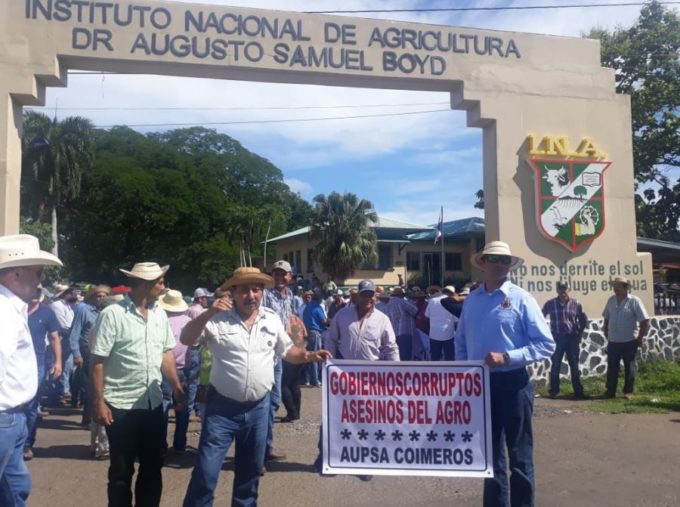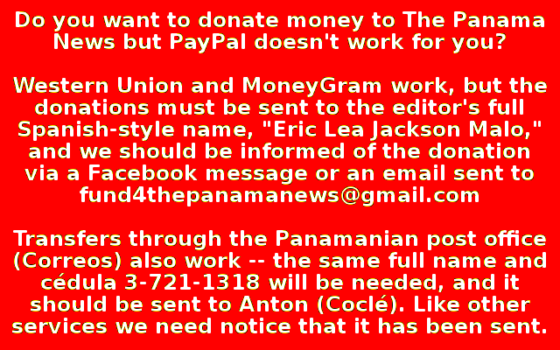
Farmers protest in Divisa: will they be discounted
and will those who brush them off soon regret it?
by Eric Jackson
On June 21 farmers from around the Interior gathered at the Pan-American Highway in Divisa to complain about their lot. Except for a brief and partial intrusion they did not close the road. Not only did they not shut down the national economy, there is real doubt about whether they can do so. Over the past decade there has been a huge reduction in land under cultivation, and while that initially meant that former grain and vegetable fields were converted to animal pastures, cattle ranching for meat and dairy products is also now on a downward spiral. A producers’ milk price of 30¢ a gallon, dairy farmers say, means that they operate in the red.
There were hardly any young people at the protest because there are few young farmers anymore. And subsistance farming? Largely a female occupation, raising gardens, chickens and children while the man of the household is off working for somebody else. These women tend not to be well represented by farm organizations or at their protests, but they do stand between much of rural society and starvation. At Divisa the crowd was mostly middle aged and older men, seeking to continue a threatened way of life.
Like almost almost all other sectors of Panamanian society, these farmers are fed up with corruption. Years of land grabbing by wealthy, sometimes foreign interests with little regard for the property rights of rural people and communities have taken their toll. Projects like the Tonosi Valley irrigation and flood control system not only didn’t materialize, but were paid for to criminals associated with the Martinelli regime. To many that’s far more offensive than the rural works that were promised by the Varela campaign that are not happening.
These farmers personify the down side for Panama of “free trade.” The nation’s agriculture has been devastated by cheap food imports, not only from the United States but especially from that country since the globalization craze swept through Panamanian laws, policies and treaty commitments.
With President Varela, many of the protesters saw reason for hope. The Varela family is, after all, a major farming power in the province of Herrera, where their liquor distilling business depends on vast sugar cane plantations. They were disappointed.
However, political realities, not all of them generated in Panama, offer a glimmer of hope. Is Donald Trump going to turn the United States inward and scrap US trade deals? A lot of Panamanian farmers who may despise Trump would consider such a thing a blessing. On the national political scene former Minister of Agricultural Development Laurentino Cortizo, who quit the Martín Torrijos administration in protest against the trade pact with the United States is, in the Electoral Tribunal mandated absence of public opinion polls, thought to be one of the main contenders for the PRD presidential nomination. Independent candidate Miguel Antonio Bernal was among the others voicing support for the protest in Divisa. The farmers, beleaguered as they may be, could turn out to be a key swing vote next year.













